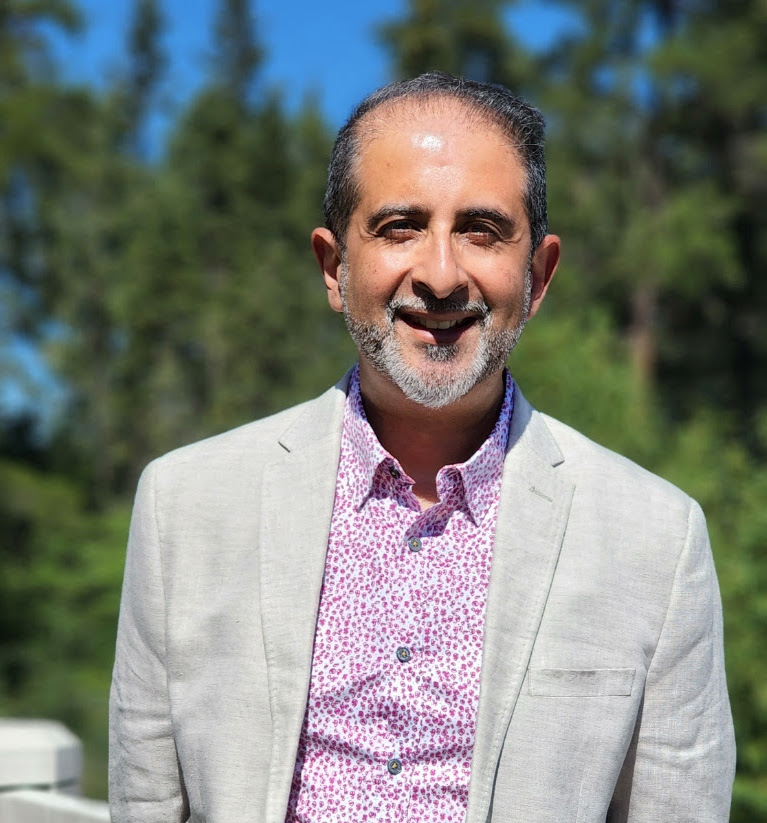Alumni Profile: Arif Alibhai
Tarwinder Rai - 19 September 2022

School of Public Health alumni and former adjunct professor Arif Alibhai (’96 MHSA, ’13 PhD PH) took part of his postdoctoral global health research project and started an NGO that today has helped thousands of underprivileged youth in Uganda access education
Health, Education and Leadership (HEAL) International, an NGO based in western Uganda was founded by Alibhai in 2008. He credits the University of Alberta for shaping his global journey when he was a graduate student, which put him on the path towards improving access to education for vulnerable children.
His supervisor’s research focused on HIV/AIDS treatment in rural and remote communities in Uganda, and it was here that he learned about the daily challenges of rural communities. “My global health research and my doctoral research were both based in western Uganda. During my time in the country, I got to truly see the struggles of people trying to overcome poverty,” he says. “It felt like I had a responsibility to use my time and knowledge to help where I could.” “Though my training and focus was on health, it seemed clear that it was the low levels of education of the community that hindered individual and community progress,” says Alibhai.
Today, thanks to HEAL, 300 orphaned children have completed their high school education, more than 30 have completed their post-secondary education. Each year 9,000 school-based students receive essential health education in Uganda. Through HEAL’s rural school support program, school student performance has quadrupled.
Recently HEAL constructed a new high school so students no longer need to walk 20 kilometres to their nearest school. There are 175 students currently enrolled at this new school – and 60 per cent of them are female.
Alibhai is also a co-owner of a biotechnology company in Edmonton —– a spinoff company from the U of A —– that manufactures and exports medical devices. He is an active community volunteer and member of the Rotary Club of Edmonton Mayfield.
Meanwhile, his NGO continues to change communities for the better. Read more about the impact his organization is making.
How is HEAL changing people’s lives?
HEAL International is the only NGO in rural western Uganda doing this type of work. We create opportunities for youth and ensure that the most marginalized (orphans and rural youth) become strong assets for their community and country. We’ve already seen significant impacts in the lives of individuals and their families.
Generally speaking, most orphans are part of child-headed households or under the care of aging grandparents who cannot work. By getting an education, they are able to engage in the workforce and bring resources into their homes. Those who complete post-secondary education have become clinical officers, nurses, lawyers and even public health researchers. These individuals uplift not only themselves and their families, but also their communities, and serve as role models and mentors for future generations.
What impact does the HEAL health program create?
Our health education program works with the local government and shares important knowledge on sexual and reproductive health and more recently mental health (we developed the first mental health curriculum for Ugandan youth). Schools that have our program show lower rates of unwanted pregnancies than other schools. During the pandemic when schools were closed, our mental health education was used to help guide students through the challenges of isolation and keep a positive and healthy mental outlook.
How has starting HEAL changed your life?
HEAL International has changed my world outlook and given me an opportunity to explore and practise the principles of global citizenship and the concept of seva (service). Working with diverse populations has allowed me to better understand my relative place in this world, the privileges and opportunities that I have as a Canadian and how I can use my time, knowledge and resources towards making the world a better place.
Within our NGO, we have youth clubs called Learning Beyond Borders with chapters at the University of Alberta and University of Calgary. Through these clubs, we develop the idea of global citizenship in youth to enable them to broaden their horizons and perceptions of their place in an interconnected world. These interactions allow me a connection to youth and their ideas in order to help develop the sustainability and relevance of our NGO as the world evolves. I am also proud that over the past few years, five of our Learning Beyond Borders volunteers have been recognized by the Alberta Council for Global Cooperation as youth leaders.
What is your favourite memory from the U of A?
I have a lot of fond memories of the U of A. As a student, it was the memories of mentorship by faculty members which led to new academic opportunities or the realization of a new insight or idea to be explored. The U of A faculty were generous with their time and with sharing their ideas and experience, which helped me to build my critical thinking and community-centred approaches to my work. Their example also promoted me to ensure that I made youth mentorship a priority in whatever I do.
What advice would you give to current students?
I would advise students to make the most of their time at the U of A and to participate in every opportunity they have to learn. This means taking full advantage of formal learning opportunities outside of the classroom, including what they can learn from interacting with the wide diversity of faculty and students they will encounter at the U of A.